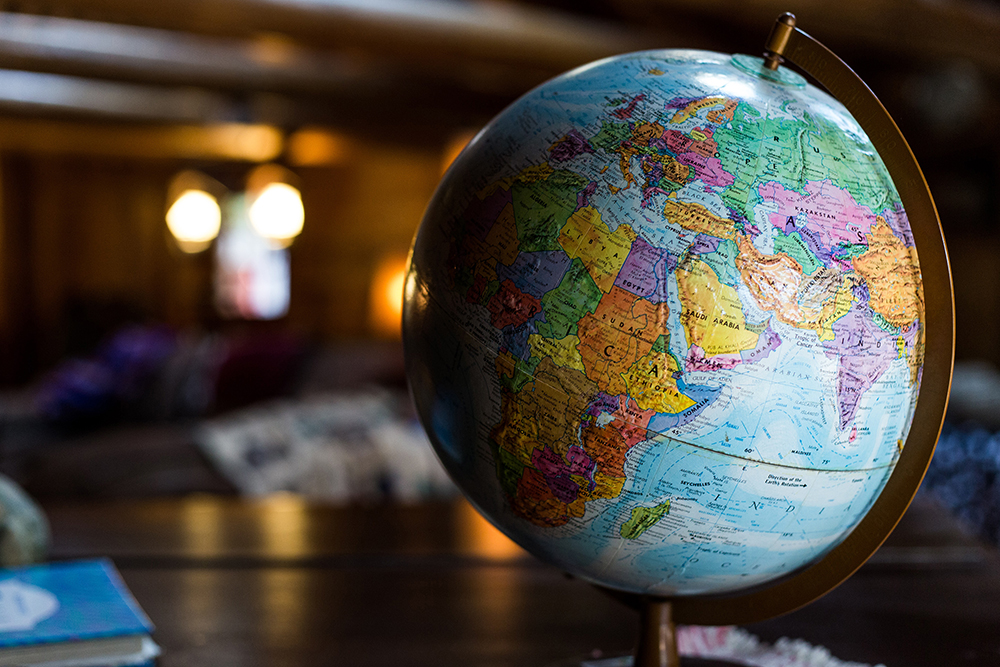
Sometimes going to the other side of the world is as simple as staying home.
For a group of 28 NOBTS and Leavell College faculty and students, their recent week-long trip to Clarkston, Ga. was a step outside the familiar and into a refugee’s shoes.
Clarkston, dubbed “the Ellis Island of the South,” provides a landing place for refugees coming from about 50 nations and more than 100 people groups to America, all who fled persecution or war.
“We were there to soak in what it means to be a refugee,” team member Laura Riley said. “The purpose of the trip was to learn.”
The well-trained staff at Clarkston Ministry Center, a NAMB Send Relief Center, provided the team orientation and training for sharing Christ’s love with those whose lives have been turned upside down. NOBTS alum Greg Wilton (MAMI ’09, Th.M. ’11, Ph.D. ’12), the Send Relief National Director for Refugees and Immigrants, leads the ministry.
For the NOBTS team members, the experience was one they won’t soon forget.
“I thought I was going to Clarkston to share the Gospel with and minister to refugees from the Muslim world,” said team member Shelly Justice. “Instead, I was ministered to by refugees who demonstrated true hospitality to me and shared their amazing stories of faith in the face of persecution.
“It was like meeting spiritual giants.”
Refugee status is a special designation granted by governmental authorities to those at great risk due to race, religion, nationality, gender, or political opinion. Settlement Services International states that refugees are forced from their homes and often placed in countries they did not choose.
“Refugees have experienced great trauma,” Riley explained.
Team members met “Momma Amina,” the only member of her immediate family that survived harsh persecution of Christians in Somalia. Another family of believers, from a different Muslim country, escaped but watched as other family members were not allowed to leave.
In Clarkston, persecuted Christians find freedom to worship as they gather at the Clarkston International Bible Church, next door to the center. Several congregations meet there, including believers from Sudan, The Democratic Republic of Congo, Nepal, Pakistan, Madagascar, and Burma.
Other refugees need to hear the Gospel for the first time.
The team learned to give a “15-second testimony” using two adjectives to describe life before Christ, a transition statement, two adjectives describing life as a believer, and ending with the question, “Do you have a story like that?”
A second tool helped team members consider the Great Commission. On a folded sheet of paper, team members explored why they share the Gospel, what to say when sharing the Gospel, who needs to hear, and when they must share it.
The booklet brought into sharp focus each team member’s willingness to obey Jesus’ command to “go and tell,” Justice explained.
“Will I say yes or no?” Justice said. “You are establishing that Jesus has authority in your life and whether you’re willing to do these things that He says.”
Team member Doug May recorded in a follow-up report the impact the trip had made on his life.
“I’ve never been to a place like this in North America,” May wrote. “I’ve never experienced the feeling of being an outsider so close to home. It was a blessing to encounter so many different cultures … in one spot.”
Team members worked with the Clarkston Center’s partnership with Love’s Latitude 33.8, a homework ministry with refugee children in multi-family housing units, founded by Jim and Jeanne Slaughenhoup.
“This is an important ministry because it gives the people who come a chance to get into a refugee family home and meet them and hear their stories,” Riley said. “It was a sweet time.”
Some team members delivered cards with prayerful messages to Atlanta area spa workers impacted by the shooting violence there earlier this year. Others shared the Gospel on university campuses.
“I was blessed by the people whom I went to serve,” Justice said. “I thought I went to bring the Gospel to them, yet so many of them showed me a new level of faith.”